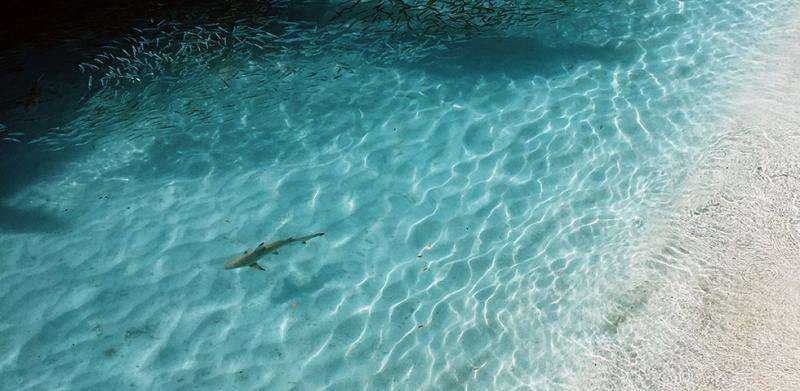Sharkspotter—a world first in shark detection

A world-first system developed by UTS is being used by Westpac Little Ripper Lifesaver to identify sharks, raise alarms and provide greater protection for swimmers and surfers.
In 2016 there were 26 recorded shark attacks in Australia, including two fatalities, leading to much public discussion about ways to improve safety for water recreation while preserving marine ecosystems. Now artificial intelligence technology is being used by Australian drone company Westpac Little Ripper Lifesaver to improve detection and identification of sharks.
Little Ripper drones are battery powered 'unmanned helicopters' with autopilot capabilities, and are loaded with the UTS software system for aerial surveillance. The system does real time analysis of overhead footage and information can be relayed immediately to emergency services, beach lifeguards, and water users for appropriate decision-making.
"The automated system for detection and identification of sharks in particular, and marine life/objects more generally, was developed using cutting edge deep neural networks and image processing techniques," said Professor Michael Blumenstein, Head of the School of Software in the Faculty of Engineering and IT.
"The system efficiently distinguishes and identifies sharks from other targets by processing video feeds that are dynamic, as well as images, where objects are static.
"The system will give an overhead warning to swimmers/surfers when a shark or a potential risk is detected, using an on-board megaphone attached to the drones. This cutting-edge AI system developed by UTS will create a positive impact for the public, making beach recreation much safer."
Dr Nabin Sharma, Research Associate, School of Software has been working on the algorithm.
"Sharkspotter uses image processing techniques, state-of-the-art sensors and software, and applies deep learning neural networks for object detection and classification," he said
State-of-the-art deep learning algorithms and image processing techniques examine live video feeds in real time to detect the presence of sharks and their potential threat to water users. This delivers 90 per cent accuracy in detecting sharks, and distinguishing between them and other marine life such as dolphins, rays and whales. It is also capable of distinguishing surfers, swimmers, boats, human beings and other objects.
"This system will help make beach recreation much safer and is a major milestone in addressing shark attacks with very real ability to save a life," said Mr Eddie Bennet, Chief Executive Officer, Westpac Little Ripper Lifesaver.
"This smart algorithm gives us yet another capability in patrolling beaches which we have been doing regularly for almost a year."
Little Ripper drones will patrol many main beaches in Australia from summer 2017/18 onward.
Provided by University of Technology, Sydney


















